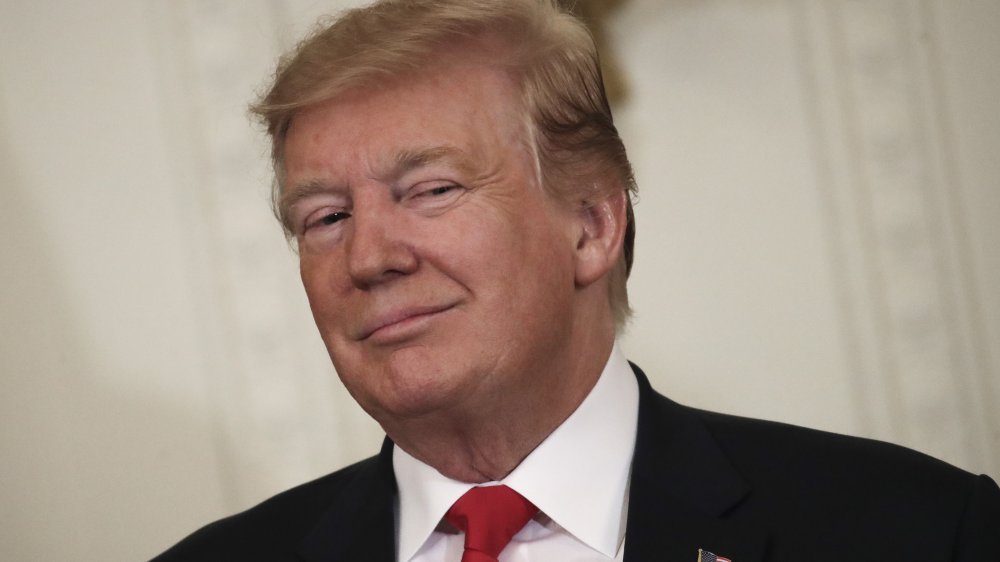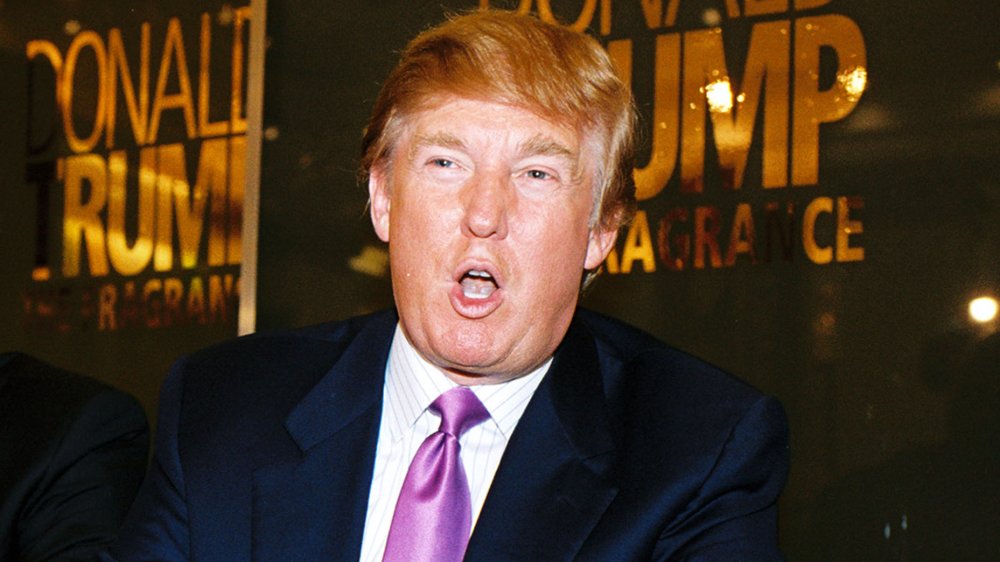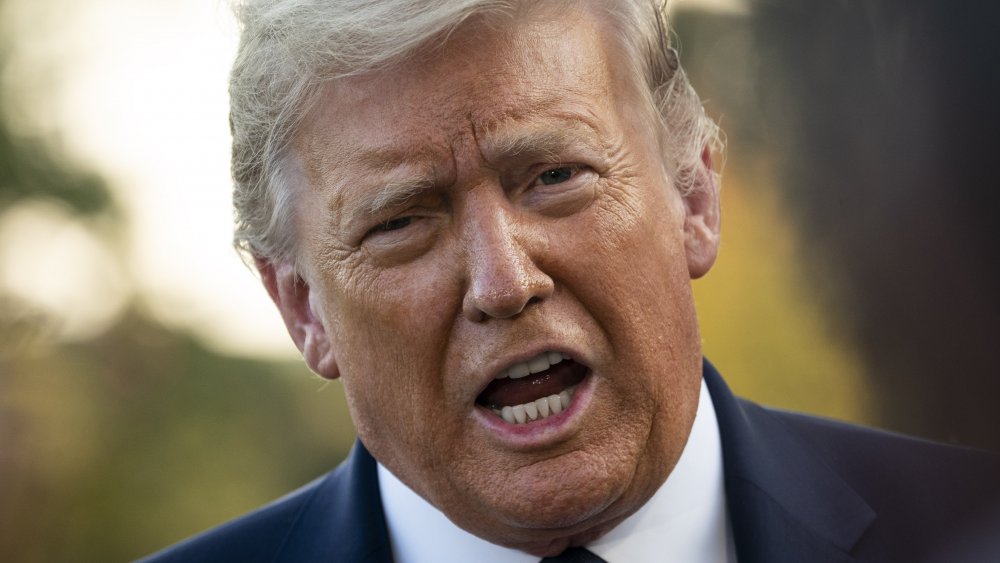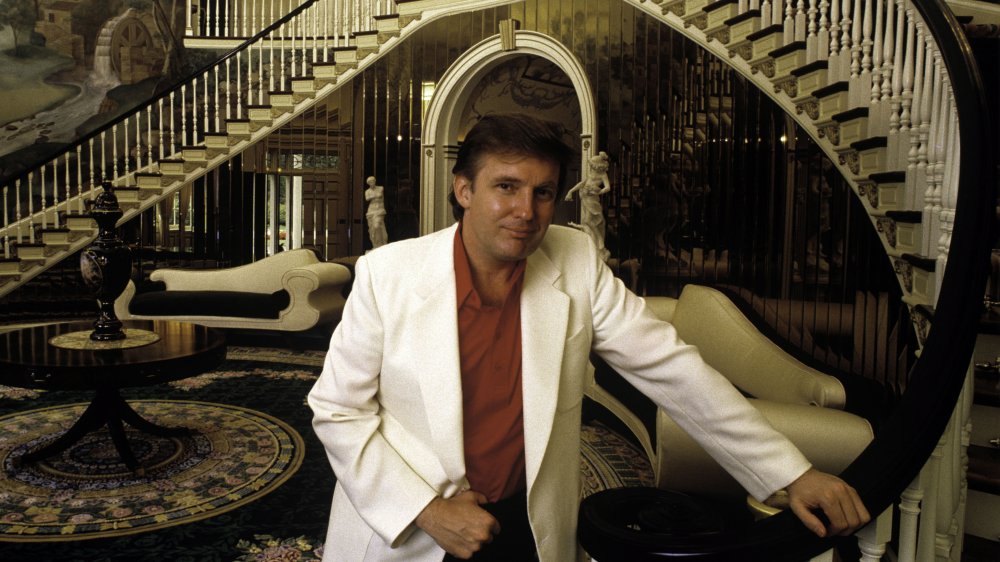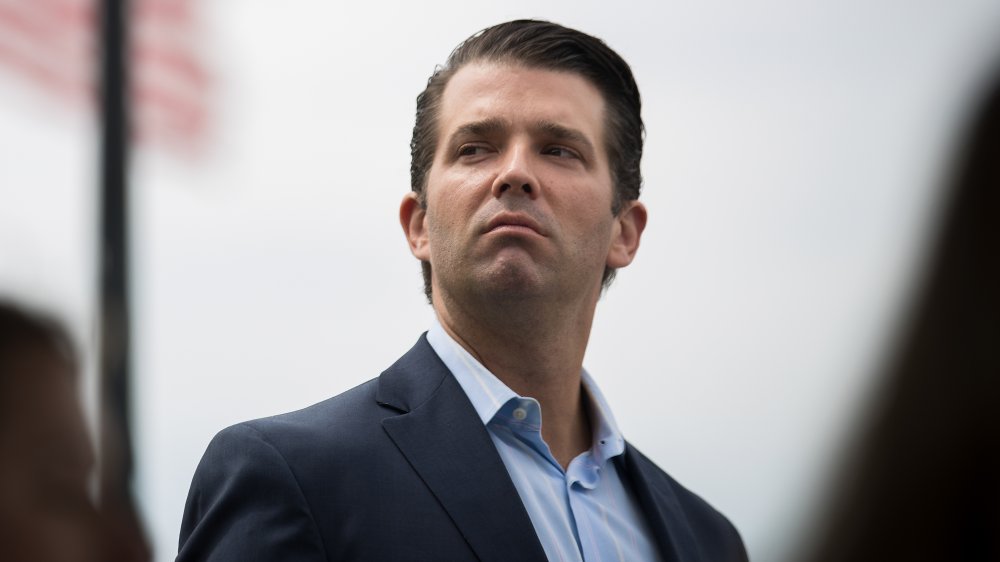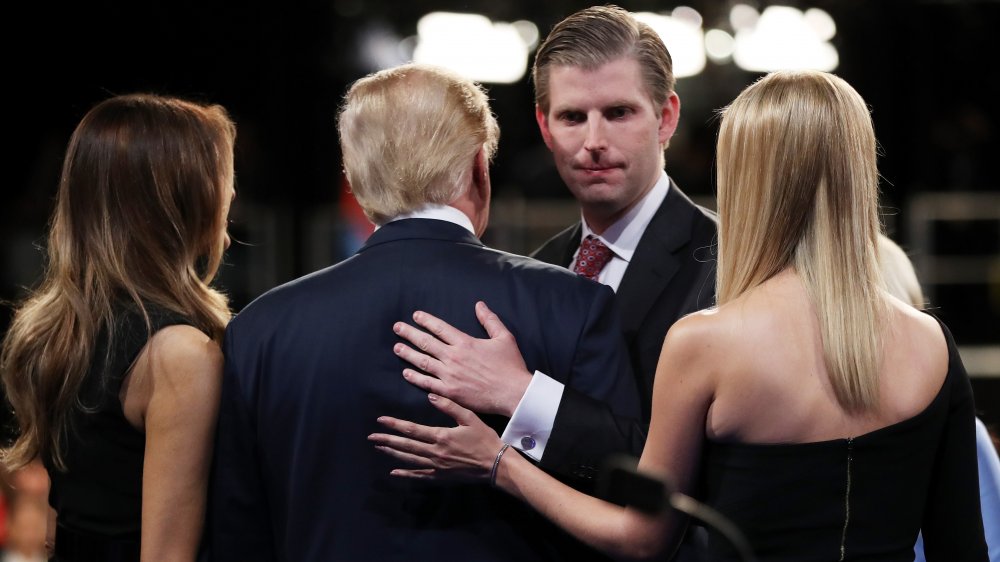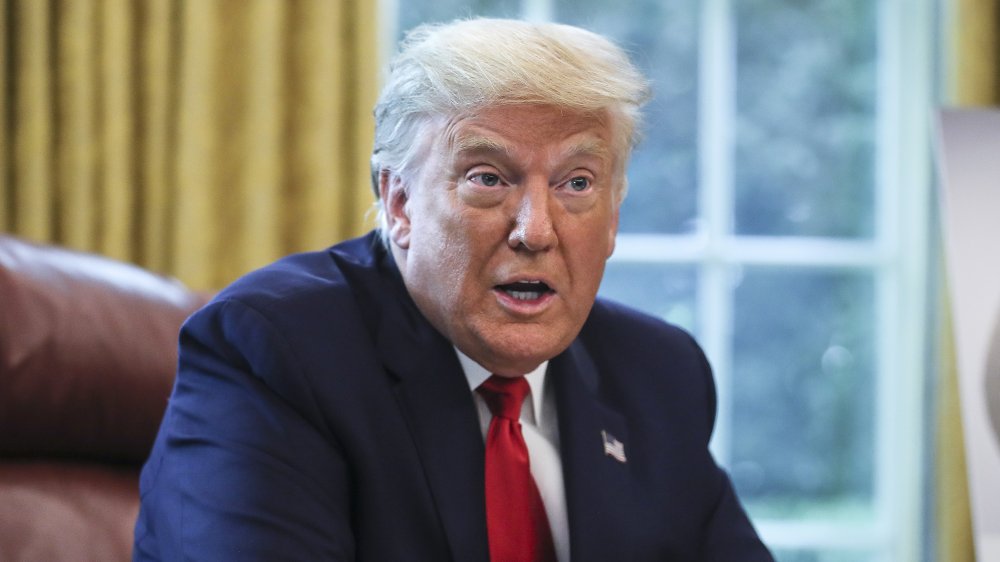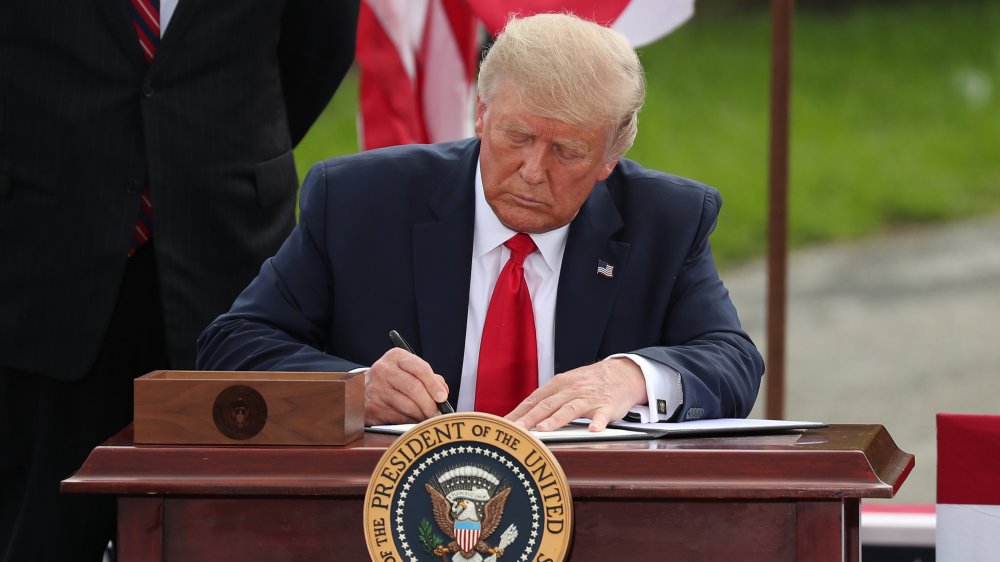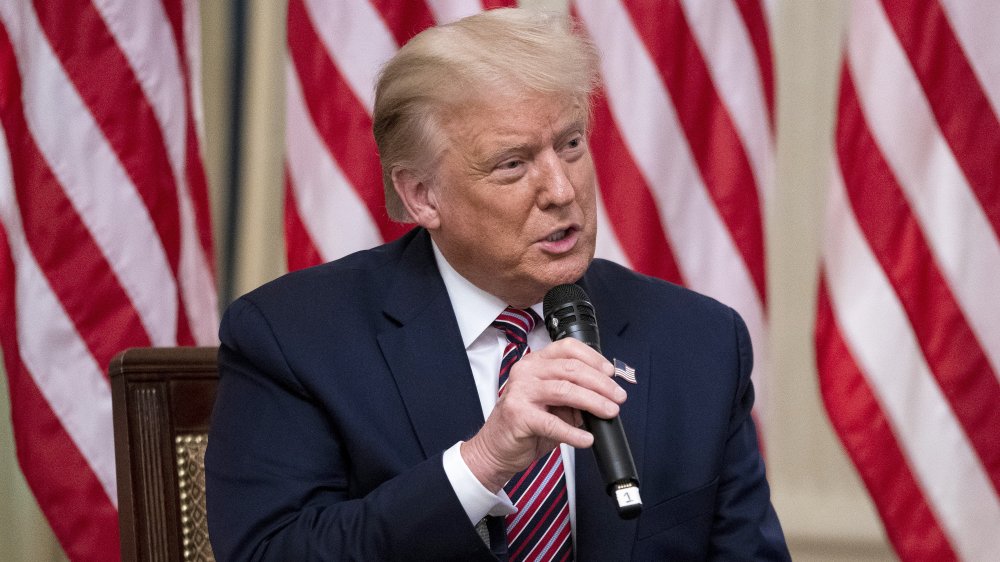The Trumps Are Not As Rich As You Think
"Money, money, money." In the words of The Apprentice's theme song: "For the love of money/Money can change people sometimes/Don't let money fool you/Money can fool people sometimes."
For decades, Donald Trump was the face and voice of affluent businessmen everywhere. From his memoir Trump: The Art of the Deal to his reality television show The Apprentice to the towering skyscrapers in major cities the world over, the Trump name was recognized as a stamp of success. Trump's professional domain has encompassed reality television, Christmas-movie cameos, beauty pageants, bestselling books, casinos, golf courses, a university, and ultimately the nation's highest office. But while Trump has seen success in business and politics, his financial failures are more abundant than they may seem.
The topic of Trump's wealth is the subject of much debate and investigation. While the president has refused to release his tax returns despite protests from fellow politicians and the public, reporters have uncovered insights into the past, present, and future of his finances. Let's take a look at the realities behind the fool's-gold facade of the Trump empire.
The myth of the self-made billionaire
Despite effectively positioning himself as the poster child for the "self-made billionaire"— and his never-ending trove of business advice for readers, students, and reality TV viewers — Donald Trump didn't exactly start from the bottom. He is, after all, the son of real estate tycoon Fred Trump, who started imparting his own multi-million dollar fortune to Donald when he was just three years old, according to an explosive 2018 report by The New York Times.
The so-called paper of record alleged that, in total, the president received the modern-day equivalent of $413 million through tax fraud from his father's fortune. The Trump family patriarch reportedly loaned Donald, as well as his other children, hundreds of millions of dollars in order to avoid paying taxes on his wealth. This made Donald an extraordinarily rich teenager. Not only did he regularly "borrow" significant chunks of money from his father, but he also never paid these loans back, according to the report.
While entrepreneurs have looked to Trump for guidance when developing their business, many of them have had to do so without the financial leg-up Trump built his brand on.
Donald Trump may not be a billionaire at all
Questions about Donald Trump's finances have been raised—and dodged—since before he ran for office. During his 2016 campaign, reporters investigated earlier claims from business reporter Timothy O'Brien, who had researched Trump's financial status in 2005 for the biography TrumpNation: The Art of Being the Donald. At the time, O'Brien's conversations with Trump's close business associates estimated that Trump was nowhere close to the billionaire he was perceived as and presented himself to be. Instead, "three executives with intimate knowledge of Donald's finances and track record" told O'Brien that the tycoon appeared to be worth closer to a net worth of $150-$250 million.
Trump responded by suing O'Brien for libel, which allowed O'Brien and his lawyers to review Trump's sealed — and heavily redacted — tax return documents. While O'Brien is not legally permitted to disclose the details of the returns, he did reveal that Trump resisted handing over the un-redacted documents for much of the five-year case. Trump ultimately dropped the lawsuit in 2009, but if nothing else, O'Brien's experience proved Trump's long-held stubbornness to keep his tax details hidden and preserve his billionaire persona.
A decade of decline defines Donald Trump
The New York Times has investigated Donald Trump's taxes throughout his presidency, digging deep into documents dating back decades. In 2019, the newspaper obtained information from sources that had legal access to Trump's tax returns.
The newspaper reported that by the time Trump's memoir hit shelves in 1987, he had already lost millions of dollars in business failures. Trump reportedly lost more than $46 million "from his core businesses" in 1986 — a figure that increased each year that followed for the next decade. Over the nine-year period from 1985 and 1994, the Trump empire faced losses of $1.17 billion. These significant losses allowed Trump to avoid paying federal income taxes for eight of the ten years the Times covered.
Several weeks before the 2019 Times report was printed, a Trump senior official shirked off Trump's apparent tax avoidance as "massive depreciation and tax shelter because of large-scale construction and subsidized developments." The official's statement continued, "The president has always scoffed at the tax system and said you need to change the tax laws. You can make a large income and not have to pay a large amount of taxes."
Don Jr.'s deluge of defunct deals
The oldest child in the president's brood, Donald Trump Jr., has a reported new worth of $25 million. He was "the first sibling to enter into the family business," according to Forbes, and he helped oversee his father's properties before becoming the executive vice president of the Trump Organization. When the president took office, Don Jr. was put in charge of the organization's operations along with his brother, Eric Trump.
Beyond the traditional Trump family real estate route, Don Jr. has attempted to pursue multiple independent investments on the side. Among these is a hydroponic lettuce company and a controversial hunting range.
Some of Don Jr.'s investments have yielded losses rather than returns. He reportedly lost $200,000 investing in a dry oil well in Texas. He also pitched in money for a $5 million investment in a former Navy hospital in Charleston — an investment which eventually led developers to file for bankruptcy. Then, Don. Jr's investment in a rusting warehouse — also in Charleston — fell apart, leading the president to bail his son out by "purchas[ing] the debt" that his son and fellow investors "personally guaranteed" per Forbes.
Divisive politics were a fashion faux pas for Ivanka Trump
Ivanka Trump has taken family tradition seriously by working in support of the Trump kingdom while pursuing several of her own entrepreneurial projects.
Forbes reported that Ivanka earned approximately $25 million as executive vice president of the Trump Organization. In 2007, she launched her own jewelry line, which brought in $75 million in sales in a little over five years, according to The New York Times. Following the success of the jewelry line, she then launched a line of women's workwear. At the height of her fashion brand's success, Ivanka may have seen an income of more than $10 million.
But the Ivanka Trump brand got caught in the storm of her father's controversial politics, sparking boycotts and ridicule regarding alleged conflicts of interest. Due to a major decline in sales, retailers Nordstrom and Hudson Bay dropped the line in 2017. "After 17 months in Washington, I do not know when or if I will ever return to the business," Ivanka said in a July 2018 statement (via Associated Press), "but I do know that my focus for the foreseeable future will be the work I am doing here in Washington." Per a 2017 disclosure of Executive Office to the President personnel salaries, Ivanka takes no salary from her position as "advisor to the president."
Eric Trump's wealth seems to be under his dad's ownership
Eric Trump has played it safer in business than his older siblings. Like Donald Trump Jr. and Ivanka Trump, Eric served as executive vice president of the Trump Organization.
But Eric's work for his father's organization — which involved overseeing golf clubs and resorts — "seems to be his only major source of wealth," according to Forbes. Beyond that, he is tied to two of his father's enterprises: Trump International Hotel in Washington, D.C. and the Trump Winery in Charlottesville, Va. Although Eric is the president of the winery and manages its operations, it is owned by his father.
Eric's personal properties are also directly tied to the president's business holdings. Eric lives in a four-unit penthouse in his father's Trump Parc East building in Manhattan. He got a family discount on the luxury units, purchasing them from his dad at approximately half price. Eric also has "a luxury duplex on the grounds of the Trump National Golf Club in New York's Westchester County." Don Jr. and Ivanka's little brother has a reported net worth of $25 million.
The presidency costs a pretty penny
Forbes' annual 400 list offers a year-by-year accounting for the presidency's impact on Donald Trump's finances. According to the list, Trump's net worth dropped from a reported $3.7 billion to $3.1 billion between 2016 and 2017. His net worth appeared to remain steady throughout 2018 and 2019, but the 2020 400 list revealed that the president's net worth had dropped to $2.5 billion, indicating a $600 million decline in just one year. The coronavirus pandemic was a key factor in this decline: by April 2020, Trump's net worth had reportedly dropped by $1 billion as a direct result of the pandemic.
Trump claimed his position in politics was to blame for his financial losses. "Whether I lost $2 billion, $5 billion or less, it doesn't make any difference," he said in October 2019 of the presidency's impact on his finances (via Reuters). "I don't care. I'm doing this for the country. I'm doing it for the people."
But following a similar statement from Trump the previous August, Forbes staff writer Chase Peterson-Withorn wrote, "Trump is not losing $3 billion to $5 billion. His income isn't anywhere near $3 billion." The journalist further alleged that lawsuits, "market forces," and Trump's prior exaggerations about his holdings have all contributed to the consistently declining speculation about his overall wealth.
Donald Trump's tax rate is 'none of your business'
"I fight very hard to pay as little tax as possible," Donald Trump said in an interview with ABC News' George Stephanopoulous during his 2016 presidential campaign. Stephanopoulous followed up by asking exactly what Trump's tax rate was, to which the then-candidate said, "It's none of your business," before repeating, "I fight very hard to pay as little tax as possible."
One of the things Trump has reportedly done in his fight to "pay as little tax as possible" is misrepresenting his finances. In 2019, ProPublica obtained some of the president's previously unseen tax documents. The documents indicated discrepancies between the way Trump presented figures for two New York City buildings to a lender and the way he presented them to city tax authorities. He portrayed the buildings as more profitable to the lender, and less profitable to property tax collectors.
"This kind of stuff is not okay," UC Berkeley finance and real estate professor Nancy Wallace told the publication. Wallace also described the discrepancies as "versions of fraud."
Does a multimillion-dollar debt await Donald Trump?
On Sept. 27, 2020, during Donald Trump's run for a second presidential term, The New York Times published another bombshell report on the president's taxes. The investigation found that Trump avoided paying any federal income tax whatsoever for 10 of the previous 15 years. It also indicated that Trump paid only $750 in federal income tax for each of the first two years of his presidency.
The investigation also revealed that the president will owe hundreds of millions of dollars in loans within the next four years, and that the Internal Revenue Service (IRS) is investigating a tax refund of nearly $73 million Trump claimed in 2010. If Trump loses the audit case, he could face an additional loss of $100 million or more.
The New York Times investigation disclosed the most details to date regarding Trump's mysterious finances, offering evidence of his financial turmoil. It raised questions about possible tax fraud, as well as doubts about his perceived wealth. The president denounced the Times report as "totally made up ... fake news," and accused the IRS of "treating [him] very badly," but until he releases his tax returns, there is little evidence to prove it wrong.

